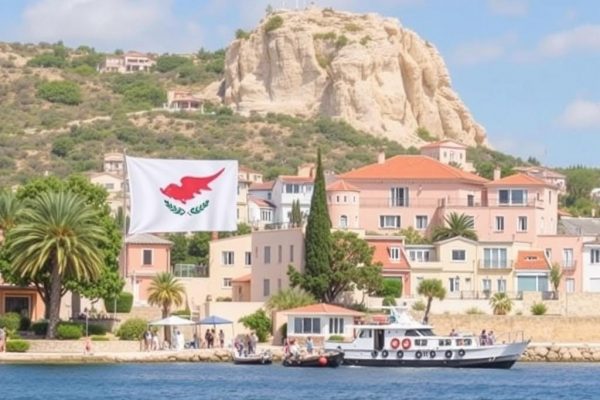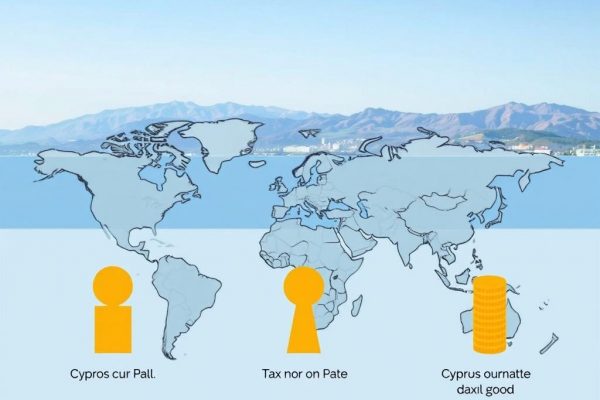Cyprus, with its strategic location, pleasant climate, and favorable tax regime, has long attracted investors, retirees, and expatriates. While citizenship in Cyprus provides full rights as an EU citizen, accessing it can sometimes present challenges due to regulatory changes or eligibility criteria. For those seeking a stable foothold in Cyprus without navigating the complexities of citizenship, permanent residence offers a practical and rewarding alternative.
This comprehensive guide explores the options for permanent residence in Cyprus, carefully examining the citizenship alternatives Cyprus provides. We will delve into long-term stay options Cyprus offers, the specifics of residency programs, and how these pathways intersect with broader EU residence permits. This article serves as a definitive, technical, and clear resource for anyone evaluating residency strategies in Cyprus without pursuing full citizenship.
Understanding Permanent Residence versus Citizenship in Cyprus
At the outset, it is essential to differentiate between Cyprus citizenship and permanent residence. Citizenship in Cyprus, particularly under investment schemes, confers full legal rights, including political participation, unrestricted freedom to live and work throughout the European Union, and access to EU consular protections. However, citizenship applications can be complex, expensive, and subject to strict scrutiny by authorities.
Permanent residence Cyprus status, on the other hand, provides the right to reside indefinitely in the country without the political rights or EU-wide benefits of citizenship. It offers a more attainable, flexible route for many individuals seeking stability and long-term living arrangements. For this reason, citizenship alternatives Cyprus options often focus on permanent residence as a sustainable choice.
Permanent residence also functions as a stepping stone to citizenship, as some residency routes allow for naturalization after a certain number of years—provided conditions are met. Additionally, permanent residence is valuable for non-EU nationals aiming to live, work, study, or retire in Cyprus while maintaining easier access to other EU countries through applicable EU residence permits.
Permanent residence in Cyprus offers stability and access without the full commitment or complications of citizenship.
Residency Programs in Cyprus: An Overview
Cyprus offers several residency programs designed to attract foreign nationals. These programs vary based on investment requirements, duration of stay, work rights, and eligibility criteria. For those seeking citizenship alternatives Cyprus, understanding these residency programs is critical.
Two principal residency categories exist in Cyprus:
- Temporary residence permits for shorter durations or specific purposes.
- Permanent residence permits, which typically involve longer durations and greater rights.
For permanent residence, Cyprus primarily offers the following options:
- Category F: Residence permit for financially independent persons
- Permanent residence permit via the “Category 6.2” investment program
- Long-term residence for EU nationals
Each option has distinct eligibility requirements and processes, and the choice depends on individual circumstances such as nationality, income source, and intentions for duration of stay.
Category F: Residency for Financially Independent Persons
Category F is a popular permanent residence solution for non-EU nationals who can demonstrate sufficient financial independence to live in Cyprus without engaging in work or relying on state benefits. This is ideal for retirees and high-net-worth individuals wanting to enjoy Cyprus’ quality of life without citizenship obligations.
The main requirements for Category F include:
- Stable and secured annual income from abroad, typically derived from pensions, dividends, or rent.
- Proof of a clean criminal record.
- Secure accommodation in Cyprus—either owning property or renting long term.
- The applicant must not engage in any business activities or local employment.
Applicants under Category F usually receive a permanent residence permit valid for five years, renewable indefinitely, providing a long-term stay option Cyprus residents appreciate.
Category F residency offers a low-maintenance residence solution for financially independent individuals.
Category 6.2: Permanent Residency via Property Investment
This investment-driven residency program is designed to attract foreign capital into the Cypriot real estate market while offering a straightforward path to permanent residence. Unlike citizenship by investment—which imposes high thresholds and notable scrutiny—Category 6.2 requires a lower minimum investment and simpler procedural steps.
Key features include:
- A minimum real estate investment of €300,000 (plus VAT if applicable).
- Ownership of residential properties, commercial units, or a combination thereof.
- Proof of financial means to maintain one’s lifestyle and cover any dependents.
- No requirement to reside continuously in Cyprus, though applicants must visit at least once every two years.
Residency permits granted under this scheme are permanent, meaning the holder and their dependents can reside indefinitely in Cyprus with freedom to enter and exit, access to healthcare, and the ability to study locally.
Long-Term Stay Options Cyprus Provides for EU and Non-EU Nationals
Long-term stay options in Cyprus are shaped significantly by the applicant’s nationality. EU citizens benefit from inherent freedoms under EU law, allowing them to reside, work, and study relatively freely with minimal administrative obstacles. Non-EU nationals face additional requirements and controlled pathways.
Long-Term Residence for EU Nationals
EU citizens have a straightforward route to long-term residence in Cyprus. They can enter Cyprus without visas and stay for up to 90 days unconditionally. For stays extending beyond this period, they must register for a residence certificate, which documents their right to reside and access social services.
After five continuous years of residence, EU nationals can apply for long-term residence status, which confers more permanent and stable rights, akin to permanent residency. Benefits include:
- Right to live and move freely in Cyprus and other EU countries.
- Access to healthcare, education, and social services.
- Facilitated access to permanent residence permits without the need for further investment.
The process is less cumbersome than for third-country nationals, requiring proof of employment, self-sufficiency, or enrolment in an educational institution.
Long-Term Residence for Non-EU Nationals
Non-EU citizens must navigate a more structured process to achieve long-term stay options Cyprus offers. The standard route involves obtaining temporary residence permits for work, study, or family reunification, then applying for permanent residence after five years of legal continuous stay.
Alternatively, investment-driven programs like Category 6.2 or Category F provide immediate access to permanent residence without the lengthy waiting periods. This makes them highly desirable citizenship alternatives Cyprus has engineered.
Non-EU holders of permanent residence permits enjoy:
- The ability to reside indefinitely in Cyprus.
- The right to access public healthcare and education.
- Limited labor market access, usually requiring specific permits for employment.
- Freedom to travel within the Schengen Area for short stays, despite Cyprus not being part of Schengen.
Long-term residency paths in Cyprus vary widely by nationality, with EU citizens enjoying facilitated procedures and non-EU nationals relying more on investment and financial capacity.
How Permanent Residence Cyprus Integrates with EU Residence Permits
Although Cyprus is not part of the Schengen Area, it is an EU member state with distinct residence permit rules aligned with EU frameworks. Permanent residence Cyprus status interacts significantly with EU residence permits, opening doors for cross-border mobility within Europe.
EU-wide legislation, particularly Directive 2003/109/EC on long-term resident status, offers third-country nationals permanent residence rights across member states. Cyprus fully transposes this directive, allowing beneficiaries of Cyprus permanent residence to seek long-term resident status in other EU countries after fulfilling residence criteria.
Key technical details include:
- Eligibility: Holders of Cyprus permanent residence who have resided for five years continuously can apply to be recognized as EU long-term residents.
- Mobility: Once recognized, they can move to other EU states for work or study under facilitated conditions.
- Renewability: The long-term resident status requires renewal every five years but offers stable legal guarantees.
This linkage significantly enhances the appeal of Cyprus permanent residence, especially for investors and workers who value EU mobility without immediately pursuing citizenship.
Comparing Cyprus Residency Programs to Other EU Residence Permits
When considering citizenship alternatives Cyprus must be contextualized within the broader landscape of EU residence permits. Many European countries offer residency through investment, work, study, or family reunification—each with unique requirements and benefits.
Cyprus stands out because:
- It provides relatively low minimum investment thresholds for permanent residence compared to countries like the UK or Ireland.
- Its Category F program supports financially independent individuals flexibly without mandatory investments.
- Applications tend to be straightforward, with transparent criteria and processing times typically within months.
- Cyprus offers permanent residence permits immediately following application approval, unlike many EU countries that begin with temporary permits.
However, Cyprus does not allow visa-free travel throughout the Schengen Zone, which some EU residence permits from countries like Portugal or Spain might enable. This factor is crucial for applicants who prioritize pan-European mobility.
Still, Cyprus residency programs serve as efficient and cost-effective citizenship alternatives Cyprus residents find beneficial, particularly those with ties to the Eastern Mediterranean or seeking a stable EU gateway.
Application Process and Documentation for Permanent Residence Cyprus
The application process for permanent residence in Cyprus is rigorous but manageable when undertaken with due diligence. The general steps include:
- Submission of a formal application to the Civil Registry and Migration Department.
- Providing proof of identity, financial means, health insurance, and accommodation.
- Undergoing police clearance to verify the absence of criminal records.
- Demonstrating compliance with the program-specific criteria (investment confirmation, income statements, etc.).
- Pending processing, which can take between two to six months.
- Issuance of the permanent residence permit, initially valid for five years, then renewable.
Maintaining permanent residence status requires adherence to legal guidelines, including timely renewals and honoring the residency obligations, such as minimum visit requirements.
Careful preparation and organized documentation significantly increase success rates when applying for permanent residence in Cyprus.
Benefits and Limitations of Cyprus Permanent Residence
Permanent residence in Cyprus provides many tangible benefits, making it an attractive option as citizenship alternatives Cyprus:
- Right to reside indefinitely in one of Europe’s most appealing countries.
- Access to Cyprus healthcare and education systems without the complications of temporary visa restrictions.
- Potential pathway to citizenship after sufficient residency duration.
- Stable legal status that is not subject to frequent renewal or revocation barring criminal activity.
- No requirement to renounce previous citizenships since this is not a citizenship path.
However, permanent residence also has some limitations when compared to citizenship:
- No voting or political participation rights in Cyprus.
- Restrictions on working without additional permits in some cases.
- Does not grant EU free movement or labor market access outside Cyprus without fulfilling other EU long-term resident criteria.
- Limited ability to sponsor family members beyond immediate dependents.
Individuals must weigh these factors carefully when considering citizenship alternatives Cyprus programs.
Future Trends and Regulatory Changes Impacting Permanent Residence in Cyprus
The geopolitical and economic climate shapes how Cyprus attunes its residency programs. Since 2020, Cyprus has tightened its citizenship-by-investment program, making permanent residence programs the forefront alternative. Developments to monitor include:
- Changes in minimum investment requirements, with potential increases to align with EU anti-money laundering standards.
- Introduction of stricter due diligence procedures to improve transparency and reduce fraud risks.
- Potential new pathways targeted at digital nomads and remote workers, responding to global work trends.
- Increased collaboration with EU authorities to harmonize residence status conditions within the Union.
Applicants should stay informed about legislative updates and prepare for evolving application frameworks, ensuring their residency plans remain viable and compliant.
Keeping abreast of regulatory reforms is crucial for prospective permanent residents to capitalize on emerging opportunities in Cyprus.
Your Next Step: Making Permanent Residence Work for You in Cyprus
Choosing the right alternative to Cyprus citizenship involves a detailed understanding of personal goals, financial capacity, and intended duration of stay. Permanent residence Cyprus options provide flexible, practical pathways that align with various profiles—from retirees and investors to skilled workers and family reunifications.
Success begins with comprehensive due diligence and professional consultation to navigate eligibility, documentation, and application procedures. Tailored residency programs offer stability and a high quality of life, making Cyprus an ideal base for long-term residence and eventual integration.
For many, permanent residence is not just an alternative but a wise, strategic decision. It balances access to Cyprus’ benefits with legal security and lower barriers than full citizenship demands. When planned carefully, it serves as the doorway to a fulfilling life on this Mediterranean island and potentially broader EU horizons.
Permanent residence in Cyprus is more than just a status—it’s a strategic foundation for your life and ambitions in Europe.
Frequently Asked Questions
-
What is the main difference between Cyprus permanent residence and citizenship?
Permanent residence allows indefinite stay and access to local services but does not provide voting rights, EU-wide citizenship benefits, or political participation available to citizens. -
How long does it take to obtain permanent residence in Cyprus?
Processing times typically range from two to six months, depending on the program and completeness of documentation. -
Can I work in Cyprus if I hold a permanent residence permit under Category F?
No, Category F holders must not engage in employment or running businesses locally; work permits must be obtained separately if needed. -
Do I need to reside permanently in Cyprus once I have the permanent residence permit?
There is usually a minimum visit requirement (e.g., once every two years) but no strict continuous residency obligation for residency programs like Category 6.2. -
Can permanent residence holders travel freely within the EU?
Permanent residence in Cyprus allows short-term travel within the Schengen Area, but Cyprus is not part of Schengen. Long-term EU resident permits can extend mobility rights. -
Is permanent residence a path to citizenship in Cyprus?
Yes, after legally residing for typically seven years, permanent residents may apply for citizenship subject to meeting additional criteria. -
What are the main investment thresholds for obtaining permanent residence in Cyprus?
The benchmark investment for permanent residence by investment (Category 6.2) is currently €300,000 in real estate, excluding VAT.





